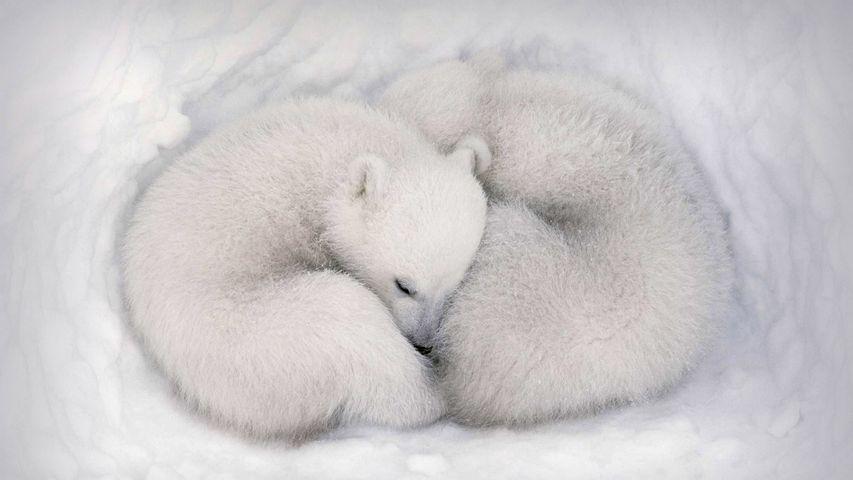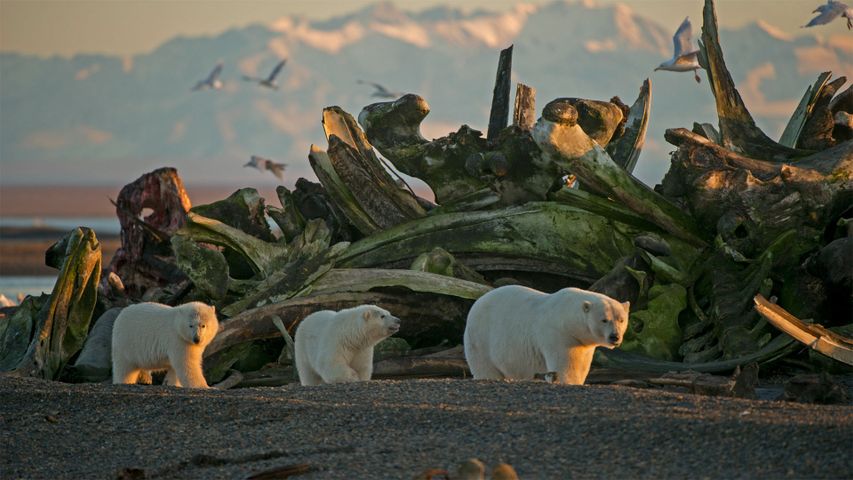Polar bear mother with cubs in Wapusk National Park, Manitoba, Canada
© Andre Gilden/Minden Picture
It's Polar Bear Day!. Polar bears
Perhaps no other creature is as emblematic of climate change as polar bears, the apex predator of the Arctic Circle. As the planet warms, their fragile habitat shrinks.
In the autumn, as ice floes diminish making hunting more difficult, a pregnant female will dig a maternity den, usually in a snowdrift. She lies dormant there through the winter, giving birth sometime between November and February. The cubs are born blind with only a light layer of fur. In the cold Arctic winter, the newborns remain in the den, growing rapidly on their mother's fat-rich milk until the young family breaks open the entrance sometime in early spring.
This mother and her cubs are enjoying a spring day in Manitoba, Canada, in Wapusk National Park. Wapusk is one of the largest polar bear denning areas in the world and is critical to the survival of about 1,000 bears, a fitting place to mark International Polar Bear Day.
Related Images
Bing Today Images
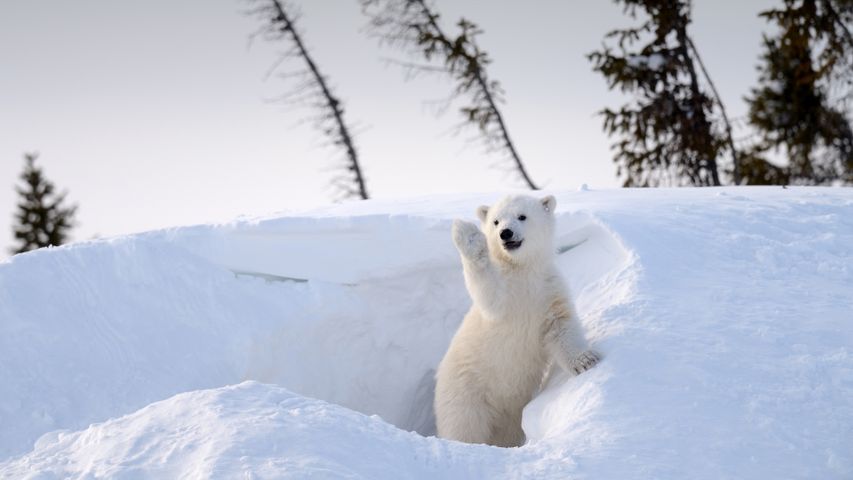
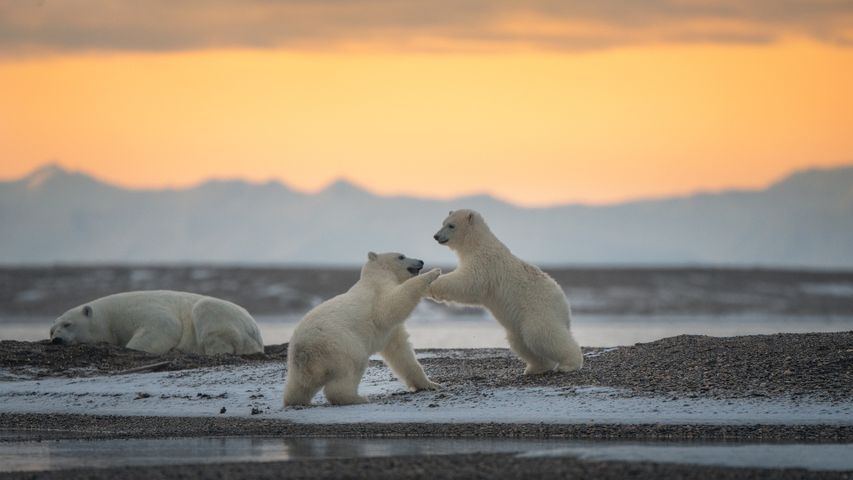
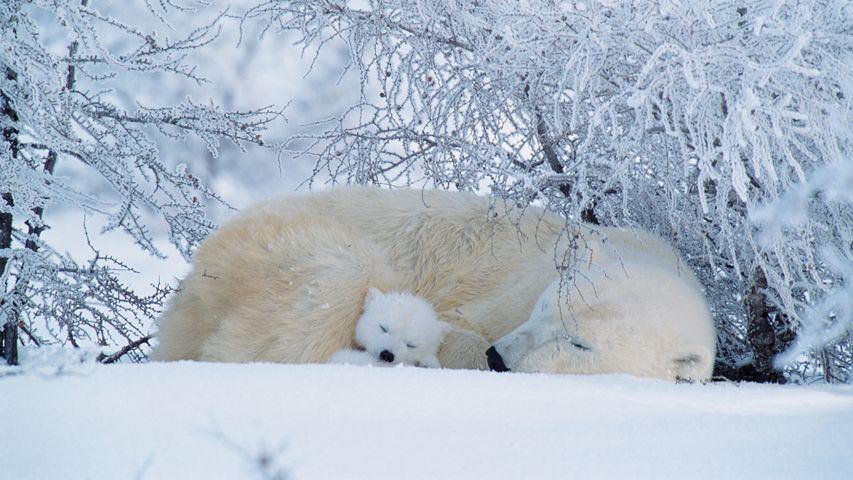
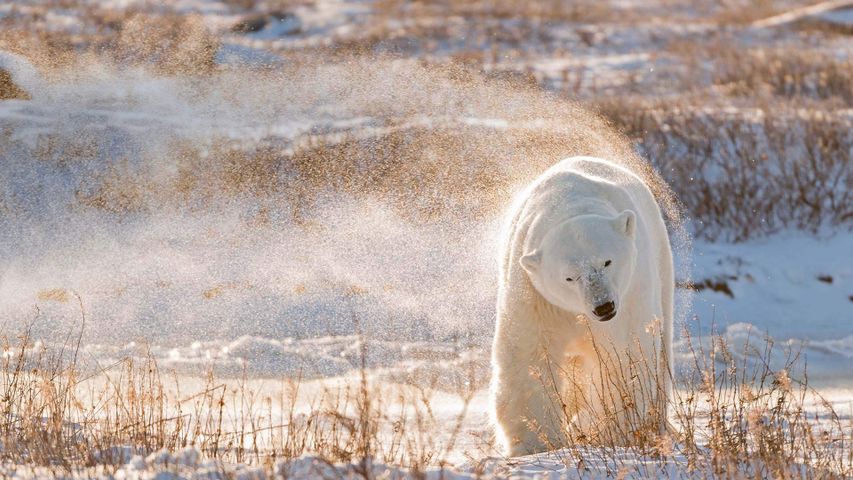
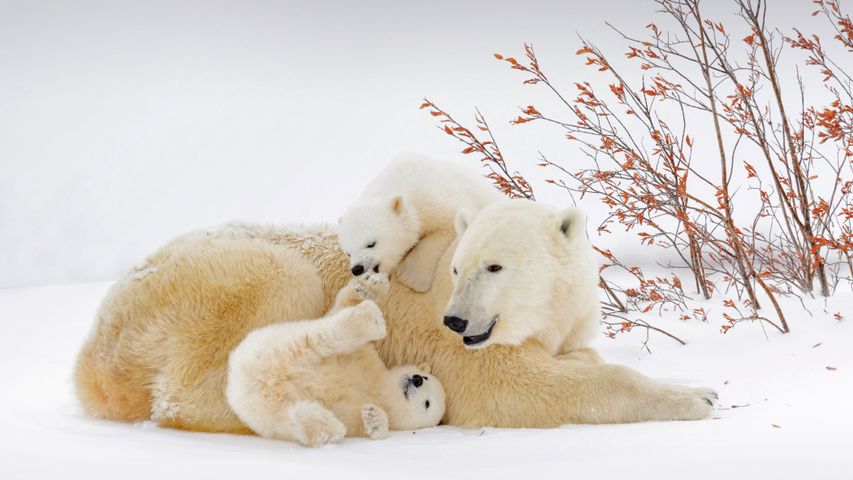
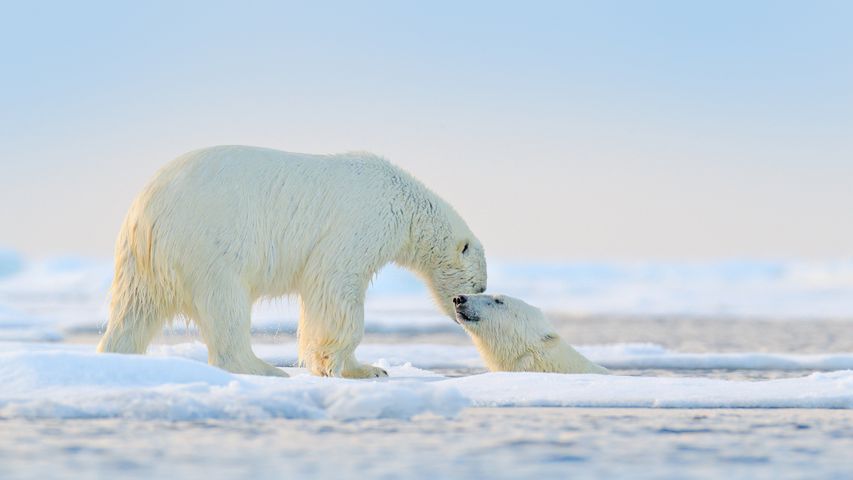 Polar bears at play in the Arctic
Polar bears at play in the Arctic
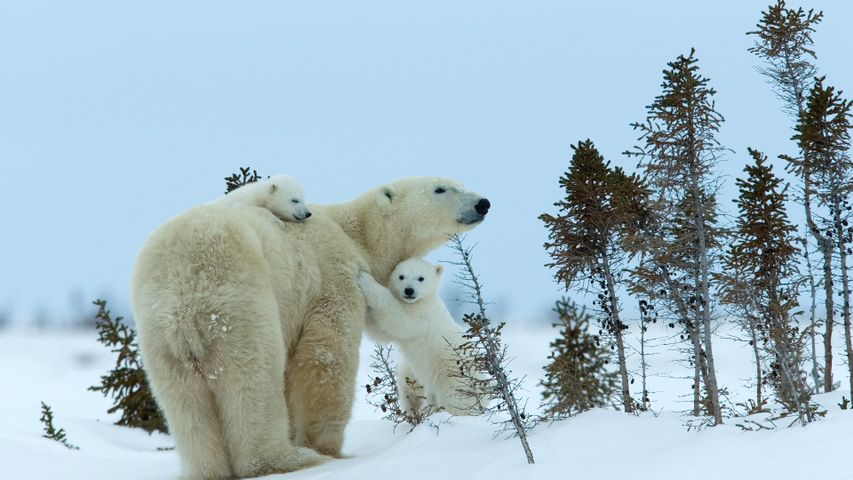 Polar bear mother and cubs, Churchill, Manitoba, Canada
Polar bear mother and cubs, Churchill, Manitoba, Canada
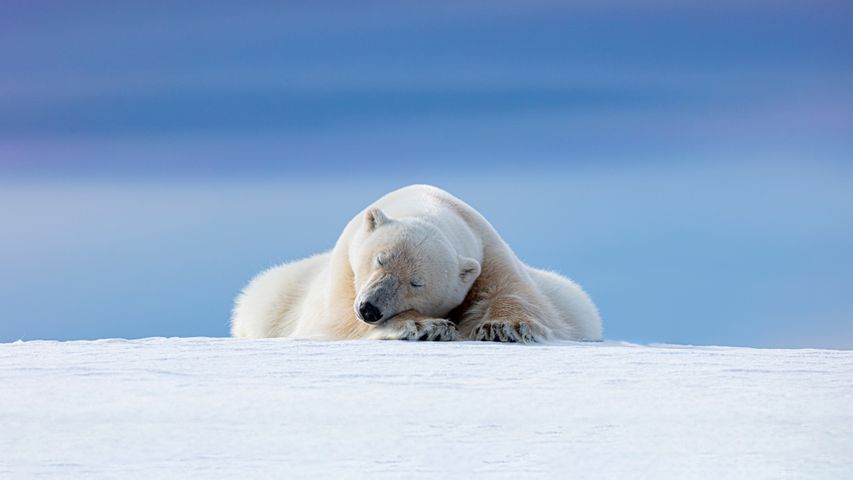 Polar bear in Svalbard, Norway
Polar bear in Svalbard, Norway
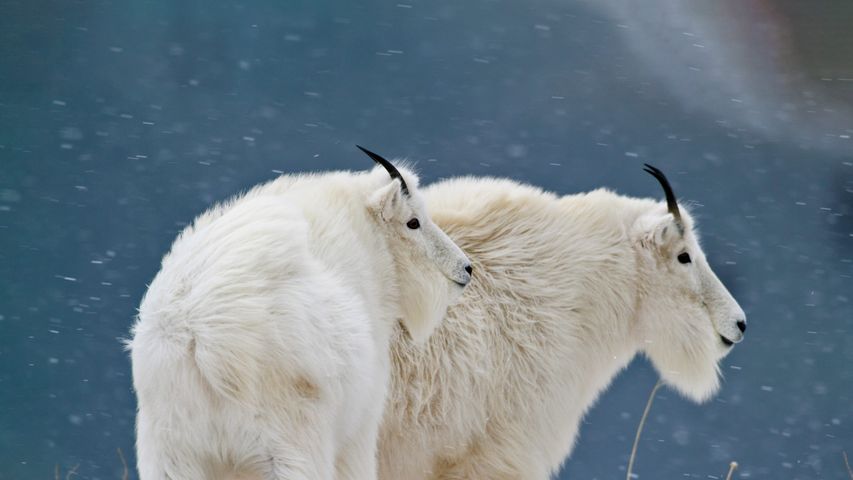 Mountain goats at Glacier National Park in Montana, USA
Mountain goats at Glacier National Park in Montana, USA
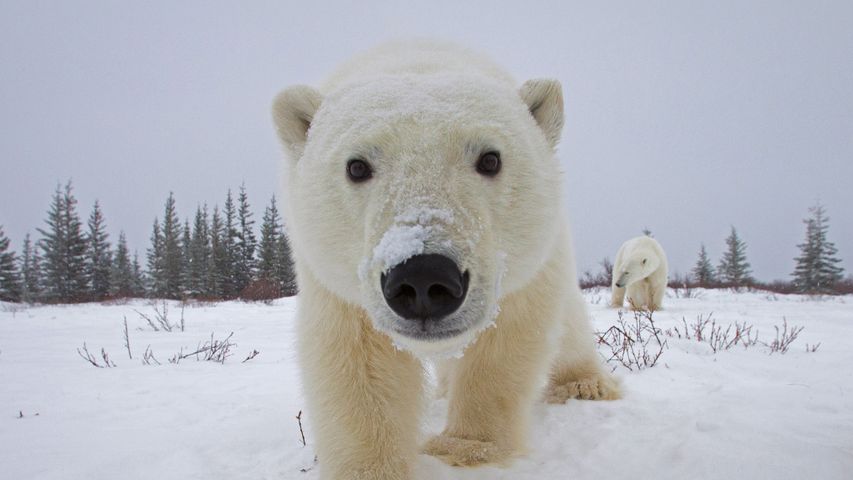 Polar bear investigating camera, Churchill, Manitoba, Canada
Polar bear investigating camera, Churchill, Manitoba, Canada
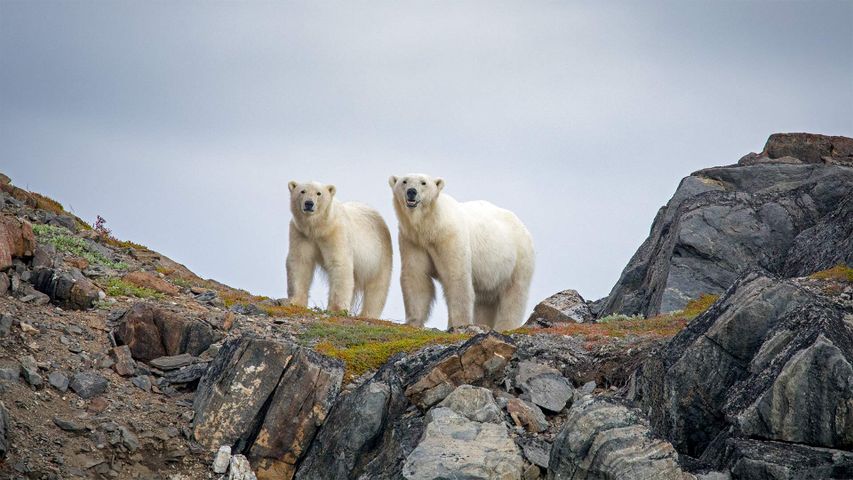 Polar bears in Torngat Mountains National Park, Canada
Polar bears in Torngat Mountains National Park, Canada
